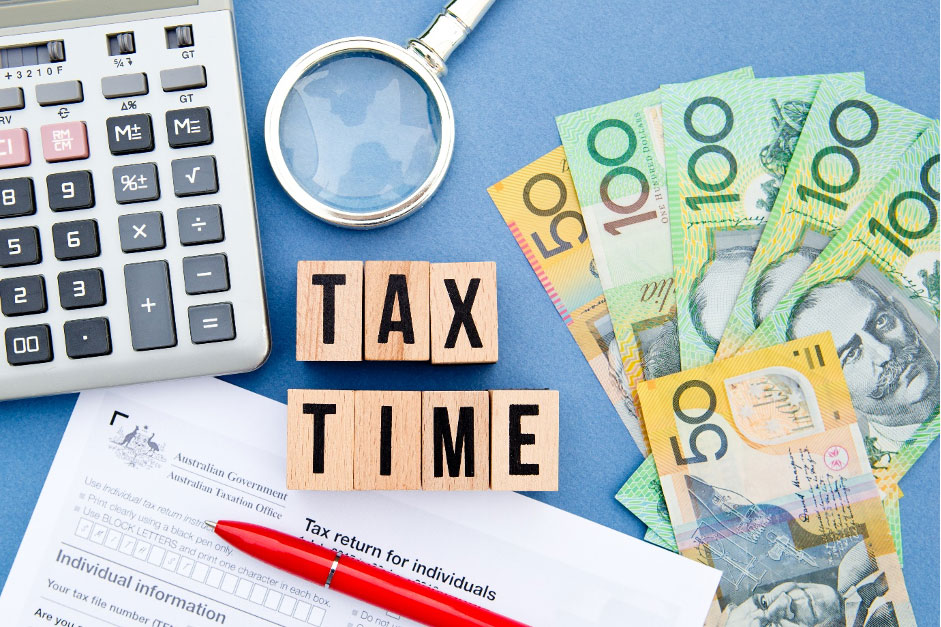2023 Australian Investment Property Tax Deductions
What tax deductions on an investment property?
Rental properties in Australia can be some of the most financially rewarding long-term investments and offer a variety of tax benefits. Taking full advantage of these opportunities to reduce your tax liability can be a great way to turn a rental property from a negative cash flow property into a positive cash flow.
Additional advantages associated with investing in rental property are distinct from those associated with other types of investments, such as :
- Compared to stocks or other investments, real estate can be less volatile.
- If you have a rented property, you will earn passive income from the rental.
- If the value of your property increases, you will receive a capital gain when you sell it.
- You are investing in real physical property so that you can show off your real estate holdings to your friends and family.
However, the details of those benefits are beyond the scope of this article. Instead, it covers what is arguably the most attractive benefit for long-term investments in a rental property — the tax benefits!
Most of your property expenses incurred while your property is rented or genuinely available for rent are deductible. It’s not possible to deduct capital or personal expenses (although you can deduct certain capital costs from the cost base of the property for CGT purposes).
Is interest on investment property tax deductible?
This is the most common question we hear from prospects before they take out a loan to invest in a rental property.
The answer: Yes. This is almost always the biggest tax deduction you can get for renting an investment property.
If you take out a loan to buy, update, repair, or renovate a rental property, you can deduct some or all of the interest. In addition, you can also claim any future interest you have paid, up to 12 months early.
The property must be rented or genuinely available for rent during the tax year. However, if any of the loans are used for a private purpose, you must apportion the interest expense to account for the portion of the loan that was used for a private purpose.
Are property renovations tax deductible?
This is the most common question from existing investment property owners.
Repairs to the rental property may be tax-deductible. However, the repairs must be directly related to depreciation or other damaging effects of rental activity.
Repairs may include replacing or renewing worn or broken materials, such as curtains, blinds, or carpets, between tenants. Fading paint or damaged interior walls are common examples of maintenance.
However, capital or capital-like expenses are not deductible as repairs or maintenance. Here are some examples of capital or capital-like expenses :
- enhancements,
- renovations,
- customizations,
- alterations, and
- initial repairs to any damage or depreciation that existed at the date you acquired the property.
Replacing broken windows, maintaining plumbing, and repairing electrical appliances are examples of repairs that can be deducted.
Landscaping, insulating the house, and adding a room are examples of non-deductible improvements.
What tax deductions can I claim for my investment property?
Advertising for tenants
Marketing expenses and advertising costs, including:
- Social media costs (such as social media paid campaigns)
- Paying for a marketing consultant
- Investing in organic search strategies – SEO – and paid search campaigns – SEM
- Newspapers, television, magazines, and radio ads (both creation and placement)
- Digital display advertising
- Website domain registration and maintenance fees
- Directory listing fees
Bank charges
Keep your investment property bank accounts and credit cards separate. Annual or monthly service fees, transfer fees, and overdraft fees are all deductible. You can also deduct merchant or transaction fees paid to PayPal or Stripe. You can’t deduct personal bank or credit card fees.
Body corporate fees
Owners of strata-titled properties, like apartment units and condos, can claim body corporate fees. Other fees, such as those for common area maintenance, can not be claimed.
Cleaning
After a tenant moves out, the property may require cleaning. Cleaning expenses can be deducted from your taxes.
Council rates
Property owners can indeed claim council rates for the period the property was occupied. This means that if a property was only rented for 120 days during the year, you can only claim a deduction for that time frame.
Utilities
The ATO allows landlords to deduct utilities such as water, electricity (including annual power guarantee fees), gas, and internet, but only for the amount of these costs that are related directly to the investment property. However, you may only claim expenses incurred by you, which excludes any water or electricity usage charges borne by your tenants.
Gardening and lawn mowing
Fees for the upkeep of landscaping and replacement of plants and structures are deductible.
Insurance
Tenant-related risks, such as loss of rental income and damage to the building, contents, or other public liability, are typically covered by insurance. Landlords are entitled to deduct the cost of insuring an investment home.
Interest on loans
If you take out a loan to buy a rental property, you can deduct the interest paid on the loan, or a portion of the interest. The property must be rented or genuinely available for rental during the tax year for which you claim a deduction.
Land tax
Land tax liabilities may be deductible based on when they arise. The timing of when you become liable for land tax depends on state law.
Land tax arrears are not deductible in the year paid. Land tax payments are deductible in the tax years in which they are due. If the property is sold and the land tax is recovered, the vendor should report it as rental income.
Lease document expenses
Lease preparation and registration fees as well as stamp duty on leases are deductible to the extent you used or will use the property to generate income. This includes costs associated with a lease assignment or surrender.
Legal expenses (excluding acquisition costs and borrowing costs)
Some legal fees related to rental income are deductible. These include
- evicting non-paying tenants,
- suing for lost rental income, and
- Defending third-party injury claims on your rental property.
Most legal fees, however, are capital expenses and thus not deductible. These include
- When buying or selling your property,
- resisting land resumption, and
- defend your title.
Mortgage discharge expenses
Mortgage discharge expenses are costs incurred other than principal and interest payments. These expenses are eligible for deduction in the year incurred if you used the mortgage to secure the repayment of money borrowed to generate rental income.
Penalty interest payments may be included in discharge costs. To accept advance payment of an investment home loan, the borrower must pay penalty interest. Calculated by the number of months that interest would have been paid had the preterm repayment not been made.
Payments made to relieve the taxpayer of a recurring duty to pay interest on a loan secured by a mortgage on a rental property are deductible.
Pest control
Depending on who paid for the service, either the tenant or landlord can claim an immediate deduction for the cost of hiring a professional pest controller.
Property agent’s fees and commissions
You can deduct regular management fees or commissions paid to a property manager or real estate agent who manages, inspects, or collects rent on your behalf.
You can’t claim the cost of:
- Commissions paid to a real estate agent to sell a rental property.
- Buyers’ agent fees are paid to a company or person to find you a suitable rental property.
- All of these expenses may be included in the cost base of your property for capital gains purposes.
Quantity surveyor’s fees
A quantity surveyor may be able to help you maximize your investment return. Your surveyor can help you prepare a depreciation schedule. These fees are tax-deductible.
Repairs and maintenance
Work done on the property that maintains it rather than improves it qualifies as an investment property deduction.
Repairing the building’s wear and tear is maintenance. So, if you need to hire a professional to fix a leaky roof, it is deductible.
However, if you decide to replace carpets with wooden floors to improve the property and thus increase its value, you can’t claim the costs. Also, the cost of a defective building work report in connection with repairs and maintenance conducted is tax-deductible.
In the case where the property is unfit to occupy for a period, the costs incurred to relocate tenants into temporary housing are tax-deductible.
Secretarial and bookkeeping fees
Investing in property can be complicated, so most landlords hire an accountant. You can deduct the cost of advice, tax preparation, and record management for your rental property accounts for the tax year. The accounting fees for preparing your personal tax return can be deducted.
Security fees
Security patrols and alarm systems for rental and investment properties are both logical business decisions that can be deducted from your taxes. Where the cost of wiring is minimal, as in small domestic systems, it may be included in the installation cost rather than treated separately. The cost of wiring a typical home security system may be considered negligible and tax-deductible.
Servicing costs
Repair services can be deducted immediately if they are related to wear and tear. That is, if you hire a professional to repair an appliance, you can deduct the cost immediately.
Stationery and postage
As a landlord, you can claim deductions for stationery, phone contracts, internet, and electricity usage – as long as you only claim the portion that relates to your investment property. Remember that claiming this deduction more than the average property investor will likely raise an ATO red flag.
Tax-related expenses
If you sell an investment property and make a profit, you must pay tax on that profit. A 12-month net capital gain is added to your tax liability, increasing the amount of income tax you pay. If you owned the property for over a year before selling it, you qualify for a 50% capital gains discount, which means you only need to report half of the gain on your personal tax return.
Travel expenses
A family investor can no longer claim travel expenses to inspect or repair a rental property. Excluded entities and landlords who invest in property are exceptions to this rule. For example, Bob’s Self Managed Fund owns rental properties, and he visits the homes to repair and garden. Bob can’t claim travel costs.
Investment property tax return example
So what can you do to make sure you’re compliant?
- Understand your obligations
- Keep timely, complete, and accurate records
- Prepare and lodge all mandatory returns, forms, and reports
- Surround yourself with great advice.
- Stay up to date with changes in legislation
TMS Accountants understand the importance of tax compliance for any small family business, and we‘re here to make it easy.

Related Articles

New rules for short term rental accommodation in WA
New rules for short term rental accommodation in...

Understanding asset protection for your growing business
Asset protection for growing businesses and...

Taking Money Out of Your Private Company: How to Avoid Division 7A Penalties
Taking Money Out of Your Private Company: How to...
Contact Us
Tax Insights & Business Advice
Receive only the guidance that matters. Subscribe now for personalised tips and expert advice, directly suited for you and your business.

